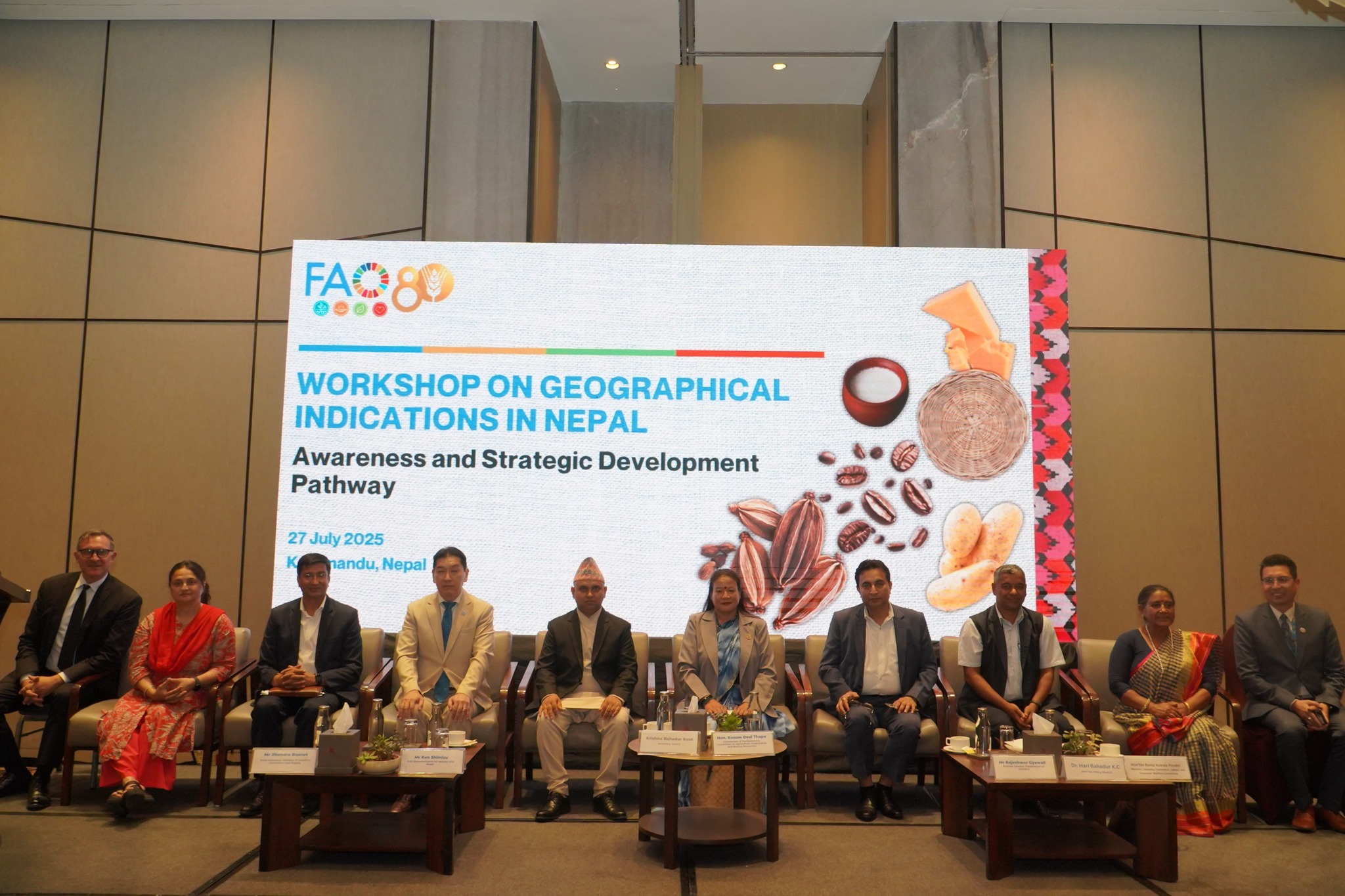

KATHMANDU: Nepal, with its rich agroecological zones and cultural diversity, possesses a vast repository of agricultural biodiversity, traditional knowledge, and unique farming heritage. These resources support a wide range of origin-linked products that hold significant economic and cultural value.
A national-level workshop, organized in collaboration with government agencies, producer groups, academia, civil society, and the private sector, was recently held in Kathmandu to raise awareness and formulate a strategic roadmap for the development of Geographical Indications (GIs) in Nepal.
Nepal is renowned for origin-specific products such as Jumla Marshi rice, Ilam orthodox tea, Mustang apples, Dhaka textiles, and Lokta paper. These goods are deeply rooted in the country’s geography, local traditions, and unique environmental conditions, and they enjoy a distinct reputation in both national and international markets.
During the event, participants highlighted the growing international recognition of GIs as a vital tool for inclusive rural development. GIs contribute to improved market access, the preservation of indigenous knowledge, and the increased competitiveness of distinctive products. These designations are protected under the World Trade Organization’s (WTO) TRIPS Agreement, which ensures legal safeguards against false claims and unfair market practices.
However, despite their promise, Nepal’s GI system is still in its infancy. Key challenges include limited public and producer awareness, the absence of a cohesive legal and institutional framework, a lack of trained personnel for registration and verification, and weak mechanisms for quality assurance and compliance. Fragmented coordination among stakeholders and insufficient technical capacity also impede progress.
The workshop underscored the urgent need for policy reforms, capacity development, and international cooperation to maximize the potential of GIs in Nepal. Strengthening the GI framework is seen as a critical step toward sustainable economic development, the preservation of cultural heritage, and the empowerment of rural communities.